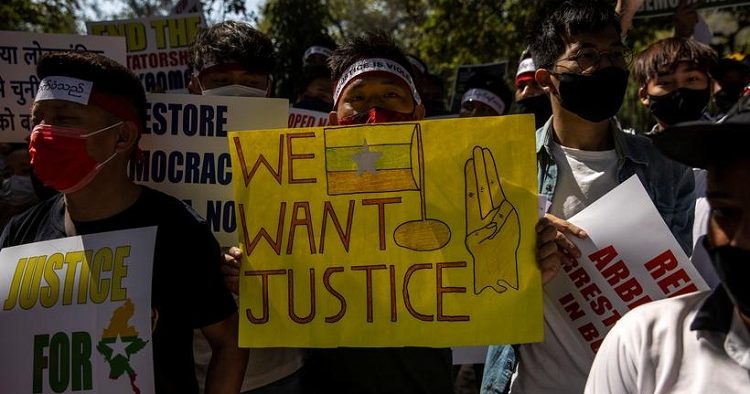India treads gently on Myanmar despite escalating violence

But India, the region’s largest democracy, has been more measured in its public positions.
Both sources, who spoke on condition of anonymity, said New Delhi understands the limitations of its influence on the Tatmadaw, preferring not to chasten them openly.
“They are very clear that they want to impress on the Tatmadaw that what has happened is wrong,” one source said.
On Sunday, after Myanmar police fired on protesters and killed at least 18 people, the Indian embassy said in a tweet: “We would urge all to exercise restraint and resolve issues through dialogue in a peaceful manner.”
“We want the government of India to give more pressure on the army to stop killing the people and shooting the protesters, and to restore democracy,” said James Fanai, president of the Chin Refugee Committee.
India has provided developmental assistance of more than $1.75 billion to Myanmar and is currently involved in developing the nearly $400 million Kaladan port and highway project in the west of the country.
It is also putting in around $250 million for another road project to connect India’s landlocked northeastern states with Thailand, via Myanmar.
“The biggest worry is the destabilising impact of this coup on connectivity,” said one of the sources.
Myanmar’s military government itself appeared to highlight India’s development role, running a story on Tuesday in a state-run daily about senior Myanmar officials meeting in the capital Naypyidaw to discuss implementing projects funded by India.
India’s reticence in calling out the Tatmadaw is further underpinned by its reliance on Myanmar troops for securing its northeastern borders, where some insurgent groups are thought to have Chinese support.
Over the last two years, the Myanmar military had undertaken operations at India’s request to flush out insurgents along the frontier, Indian army chief General Manoj Mukund Naravane said last month.
The Indian military also trains a number of Myanmar soldiers at its facilities and New Delhi last year gifted the Tatmadaw with its first submarine.
Gautam Mukhopadhaya, a former Indian ambassador to Myanmar, said the Indian officials would also be thinking back to New Delhi’s backing of pro-democracy protests in Myanmar in 1988, which were suppressed by the military, leaving India’s ties with a key neighbour in tatters.
“We went on a limb for the students and the pro-democracy agitation, and then the junta crushed it,” he said. “And then we needed the army to deal with our own security issues.”
Reuters











